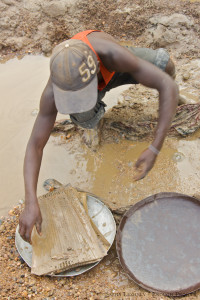I am always interested to know where the products I buy come from, and at this particularly consumer-focused time of the year, it highlights the issue further. It is interesting to me just how complex the chains of dependencies involved in making any non-trivial ‘thing’ really are.
The computer I am writing this on was assembled in the UK, but I would suggest that most, or all, of its components were not. What about the suppliers who provided sub-components for those components? What about the raw materials, including the traces of rare earth minerals needed to do its electronic magic?
Unfortunately, the result of this enormous complexity, and the fact that the retailers from which we buy care about little but the price they pay, means it is very difficult to verify really important aspects of how the goods we consume were made. It seems that nobody, not even the retailers at this end of the chain, has the depth of insight into their supply chain needed to affirmatively say “this is how our product was made”.
So, when cost is the primary concern, and nobody really digs deep to understand what is happening at each stage of a product’s life, how can consumers at this side of the transaction be empowered to make more ethical choices?
If I go to my local big-name supermarket to buy a kettle, for example, I cannot look at all the options and make an assessment about which product was made in a way that best aligns with my values. Did the manufacture of the cheapest £5 kettle involve the exploitation of somebody? Probably. Is the £30 ‘luxury’ choice any better? We just don’t know.
There are pockets of hope in this area — initiatives like Fairtrade have, for some product categories, encouraged supermakets to go ‘all Fairtrade’ for particular items, and for other companies (tea and coffee businesses being a good example) to take steps to at least appear to be sourcing more ethically.
I just wish there were a big push from somewhere to gather accurate intelligence about how our stuff is made, and begin labelling more products in a way that empowers consumers to make better choices. I think there is a good portion of the population who want to make better choices that support human rights, environmental protection and social progress, but without high quality, verifiable information about what goes into what we consume, we are in the dark. While we remain uninformed, we cannot exert pressure on the market to do better as a whole.
